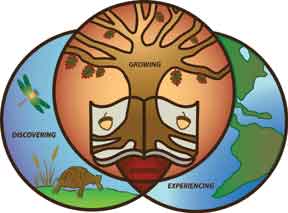David W Orr
We are accustomed to thinking of learning as good in and of itself. But as environmental educator David Orr reminds us, our education up till now has in some ways created a monster. This essay is adapted from his commencement address to the graduating class of 1990 at Arkansas College. It prompted many to wonder why such speeches are made at the end, rather than the beginning, of the collegiate experience.
Six myths about the foundations of modern education, and six new principles to replace them.
 If today is a typical day on planet Earth, we will lose 116 square miles of rainforest, or about an acre a second. We will lose another 72 square miles to encroaching deserts, as a result of human mismanagement and overpopulation. We will lose 40 to 100 species, and no one knows whether the number is 40 or 100. Today the human population will increase by 250,000. And today we will add 2,700 tons of chlorofluorocarbons to the atmosphere and 15 million tons of carbon. Tonight, the Earth will be a little hotter, its waters more acidic, and the fabric of life more threadbare.
If today is a typical day on planet Earth, we will lose 116 square miles of rainforest, or about an acre a second. We will lose another 72 square miles to encroaching deserts, as a result of human mismanagement and overpopulation. We will lose 40 to 100 species, and no one knows whether the number is 40 or 100. Today the human population will increase by 250,000. And today we will add 2,700 tons of chlorofluorocarbons to the atmosphere and 15 million tons of carbon. Tonight, the Earth will be a little hotter, its waters more acidic, and the fabric of life more threadbare.
The truth is that many things on which your future health and prosperity depend are in dire jeopardy: climate stability, the resilience and productivity of natural systems, the beauty of the natural world, and biological diversity.
It is worth noting that this is not the work of ignorant people. It is, rather, largely the result of work by people with BAs, BSs, LLBs, MBAs, and PhDs. Elie Wiesel made a similar point to the Global Forum in Moscow when he said that the designers and perpetrators of the Holocaust were the heirs of Kant and Goethe. In most respects, the Germans were the best educated people on Earth, but their education did not serve as an adequate barrier to barbarity. What was wrong with their education? In Wiesel’s words: “It emphasized theories instead of values, concepts rather than human beings, abstraction rather than consciousness, answers instead of questions, ideology and efficiency rather than conscience.”
David W. Orr is the Paul Sears Distinguished Professor of Environmental Studies and Politics at Oberlin College and author of seven books, including Down to the Wire: Confronting Climate Collapse (Oxford, 2009) and Hope is an Imperative (Island, 2010). He can be reached at dorr@oberlin.edu.
